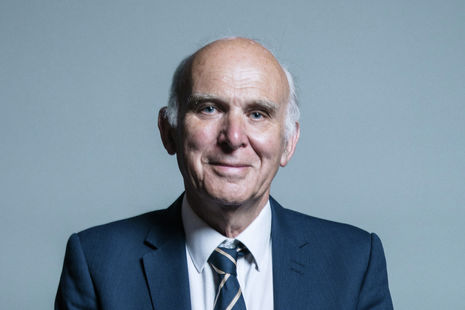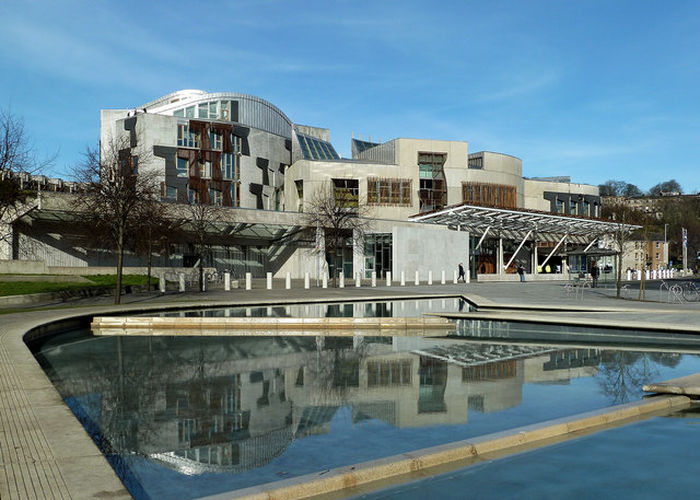‘The Government are drifting into trouble’: Vince Cable on populism and the future of centrist politics
Shannon Rawlins speaks to former Lib Dem leader Vince Cable who is hopeful that a “centre-left government will seem perfectly plausible in a few years time”.

I certainly didn’t expect to have the opportunity to carry out an interview with a famous politician during the remote Easter Term but Zoom has proved to be something of a panacea over the lockdown period. Following the Cambridge Union’s panel about whether coronavirus marks the end of the European project, I spoke to Vince Cable, former leader of the Liberal Democrats 2017-19.
We began by discussing how EU countries have differed in their approaches to tackling coronavirus. Cable pointed out that “some of the poorer and weaker countries in the European Union have actually handled the pandemic best,” such as Greece, Slovakia and Lithuania.
And as we are all painfully aware, the UK’s response has been inconsistent at best and a shambles at worst. Warnings went ignored in the early days and the concerns of UK scientists and medical researchers fell on deaf ears. Johnson’s government was distracted by Brexit, still basking complacently in the glow of their success in the recent election.
Things are looking rather haywire now, according to Cable: “Already there is a bit of a hint that the Government are drifting into trouble. Johnson is blustering; he came across reasonably well at the first outing, but as it becomes clear he hasn’t got a grasp of the detail, his credibility is beginning to wane.”
Johnson’s approval ratings seem to be in accordance with Cable’s assessment. According to YouGov, his popularity peaked in early April, when 30% of respondents thought Boris was doing “very well” as Prime Minister, compared to 13% in January. This figure has since dropped to 23%, while those who believe Johnson is doing “very badly” has risen by 6% in the last month and, with the recent revelations about Cummings, it’s likely the government will experience another dip.
However, the UK government remains, on the whole, resolutely popular. The proportion of people who approve of the government is the highest it has been in a decade. Perhaps Cable’s claim that “people will be looking for alternatives, and maybe a centre-left government will seem perfectly plausible in a few years time” is a little over-optimistic; time will tell.
“The effect of the pandemic has been to reassert the value of dispassionate experts who don’t play to the gallery, who are driven by evidence, and that’s not consistent with populism.”
He goes on to highlight that the arrival of Keir Starmer could be advantageous to the future of the Lib Dems.
“The one big thing that’s changed is the fact the Labour party have now got a sensible leader who is highly electable and has sensible people around him. And actually, I think that’s helpful to the Lib Dems because people are not going to vote for us in the general election if they are afraid of a Labour government who they think is dangerous. That’s no longer the case. I think we may be back to 1997 when the Lib Dems had a big breakthrough. It was partly because of their own efforts but also because of Tony Blair.”
“People will be looking for alternatives, and maybe a centre-left government will seem perfectly plausible in a few years time”
I asked Cable if he had any thoughts on the short-lived Independent Group, a centrist, pro-European breakaway political party formed in February 2019 and dissolved less than a year later – shortly after all its MPs lost their seats in the December 2019 general election. Cable, ever the pragmatic realist, is sceptical about the concept of breakaway parties.
“There is just no room in the British political system for new breakaway parties. It was a point that Chukka realised before everyone else, and Heidi as well. I had very close contacts with them through the whole of that process, and I tried to persuade them not to go it alone. They would be splitting our vote and not achieving anything and I think they realised that. There is no future in an organisation going off on its own.”
And what of Brexit? The issue which has singularly dominated British politics for half a decade has been swallowed up in the current global health emergency. Yet although Brexit has drifted out of public debate, the government are still ploughing on to ‘get it done’. Cable is cynical about their agenda.
“The effect of the pandemic has been to reassert the value of dispassionate experts who don’t play to the gallery, who are driven by evidence, and that’s not consistent with populism.”
“We shouldn’t be doing this. It’s just absolutely insane that we’re going through this whole Brexit process at a time when business confidence is already on the floor and the economy is in such a dreadful state. The cynic in me believes the government are just hoping all the negative effects will be lost in the general mess. But it is a rather reckless thing to do. But they’re not going to listen to people like me because I’m the usual suspect.
“I think what may happen at the end of the transition period is there will be no deal, but there will be a tacit understanding that nothing much is going to change in the next few years, and that will hopefully deal with some of the uncertainty.”
Cable is certainly out of the limelight on the British political stage, but his insights are shrewd. We are living in interesting times, and who knows what the impact of the pandemic will be on the shape and pattern of British politics?
 News / Eight Cambridge researchers awarded €17m in ERC research grants27 December 2025
News / Eight Cambridge researchers awarded €17m in ERC research grants27 December 2025 News / Clare Hall spent over £500k opposing busway 24 December 2025
News / Clare Hall spent over £500k opposing busway 24 December 2025 Comment / League tables do more harm than good26 December 2025
Comment / League tables do more harm than good26 December 2025 Comment / The ‘class’ of Cambridge24 December 2025
Comment / The ‘class’ of Cambridge24 December 2025 News / Caius mourns its tree-mendous loss23 December 2025
News / Caius mourns its tree-mendous loss23 December 2025









